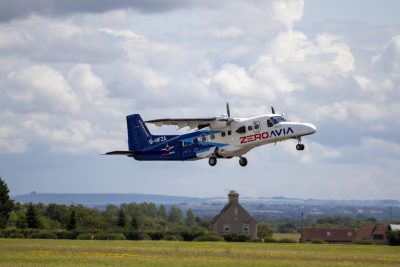
Toronto Pearson, Montreal Trudeau and Vancouver International airports announced jointly this week that they will collaborate with Europe’s Airbus SE and ZeroAvia on the use of hydrogen as a fuel in the aviation industry.
“We are bringing together Canada’s largest airports, the world’s largest aircraft manufacturer and the leading innovator in decarbonized propulsion technology, in order to progress the transition to hydrogen aviation,” said ZeroAvia’s founder and CEO Val Miftakhov. ZeroAvia is a British-American company founded in 2017 that is pursuing the development of hydrogen-electric engine technology. In 2023 it conducted 10 flight-tests on a Dornier 228 passenger airplane on which one of its two engines was a hydrogen-electric engine developed by the firm.
“ZeroAvia flight testing demonstrates that hydrogen-powered commercial aviation is a prospect ahead of 2030, so we need to start working hard to prepare for the hydrogen infrastructure needed to support the aviation industry and airports as they step into a new golden age of clean flight,” said Miftakhov. The role of the three Canadian airports in the project is how infrastructure and delivery of hydrogen as a fuel can be handled at airports.
“The collaboration between Airbus, ZeroAvia and the three biggest airports in Canada will help identify the changes required in our industry and supporting ecosystem to meet carbon reduction goals,” said Vancouver Airport Authority CEO Tamara Vrooman.
According to Airbus’s ZEROe Ecosystem vice-president Karine Guenan, “Canada is one of the most promising regions for hydrogen hubs due to its natural resources. …These first Canadian hydrogen partnerships enable us to cover the country from coast to coast.”
All three airport authorities aim to achieve net-zero carbon emissions by 2050.
